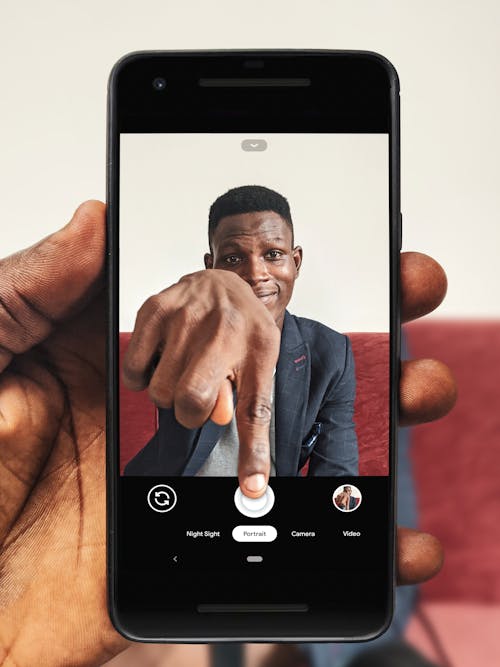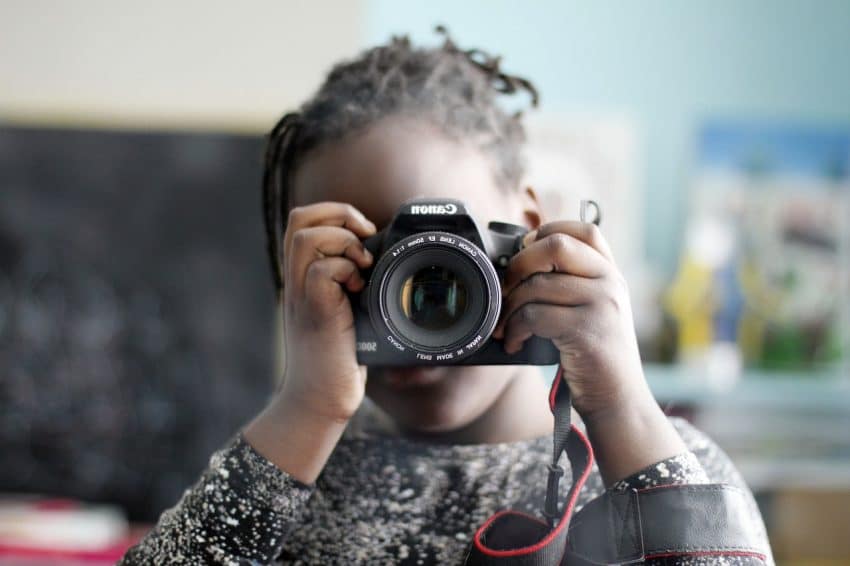When it comes to Parents and sharenting, let us discuss 5 important things parents need to know. Did you know that By the age of five, many children will have had 1,500 photos of them shared online? But what happens when they grow up? We are finding out that not every child appreciates having shared their whole life with the world even before they had a say in the matter.

What is Sharenting?
Sharenting is the overuse of social media by parents to share content based on their children, such as baby pictures or details of their children’s activities. In our day and age, technology has exploded, as has the rise of social media. Our current generation is so dependent on technology and social media that we cannot remember a world before it.
The term Shareting was first coined in The Wall Street Journal. They explained sharenting as a combination of “over-sharing” and “parenting”.
According to a 2015 Poll on Children’s Health, the University of Michigan C.S. Mott Children’s Hospital National found that about three-quarters (74%) of parents who use social media say they have seen another parent “oversharing.”

Who Has the Right to Share?
When Gwyneth Paltrow posted an Instagram selfie on a ski lift with her 14-year-old daughter, Apple, she might not have expected what happened. Her daughter, Apple, shared her displeasure with this comment: “Mom, we have discussed this. You may not post anything without my consent.” Her mum responded that you could not even see her daughter’s face. But does this make it okay to share without their consent? This is a problem being echoed around the world.
Microsoft released the results of an internet safety study of 12,500 teens across 25 countries. Of the teens surveyed, 42 per cent said they were distressed about how much their parents “shared” online, with 11 per cent believing it was a “big problem” in their lives.
Earlier, the child of an Instagram influencer wrote an anonymous Reddit post vocalising concerns about the images posted by his mother. He shared that it sucks because there’s so much out there about him. Furthermore, he shared that this stuff is going to come up when he is looking for a job or perhaps when he is dating, and anyone looks up his name.
The user went on to detail a plan to stop the mother from being able to take pictures, such as wearing hoodies printed with slogans that say, “I do not consent to be photographed and No profiting off my image”. The child, in this case, felt he had no other option. This is a clear case of parents sharenting causing a child distress.
Sharenting Contributes to Digital Footprints
Once a picture is out there, it is out there. Imagine the case of a meme of a naked child sucking on a pacifier. When a reverse image search was completed, it was found that the image had been shared thousands of times. Just imagine how this child would feel thirty years from now, and the facial recognition technology pairs that naked toddler image with a CEO.
Yair Cohen, a UK-based lawyer who specialises in social media, cautions about the potential for damage to relationships between parents and their children as well as the scope for embarrassment. Many teenagers may become resentful later on when the self-image issue is significant. Your child might ask you why you shared and exposed such private photos to the world. [Tweet “In the end, they may think, ‘Why did you do this to me? You’re meant to protect me, but actually, you exposed me.”]
Adolescent therapist Robert Batt, who runs clinics in Riyadh and London, agrees: “Our job really is to think about the feelings of the adolescent. It’s essential to ensure those feelings are respected because if they aren’t, we will start seeing consequences.
What is more important: the ego and image of the parents sharenting, or the feelings of the child who’s being used as a tool? Share on X
Legal Cases from Sharenting
In an era where it is common to share photographs of a baby while it is still in the womb and “mumfluencers” represent an $11bn industry, could a young person, take legal action against their parents for a breach of their privacy?
Attitudes to parents sharenting vary from country to country. In 2015, German police ran a social media campaign warning parents against posting pictures of their children publicly on Facebook because paedophiles can use the images.
Additionally, French lawyers warned that a child could grow up to sue their parents for risking their security. Under strict privacy laws, parents could face a year in jail or a $45,000 fine. In another case, an oversharing grandma’s court case offers lessons on setting boundaries for a child’s online privacy.
A court in the Netherlands recently ruled that a grandmother had to take down pictures she posted on Facebook of her grandchildren. The children’s parents did not give the grandmother permission to post the pictures. As a result her daughter, the children’s mother, sued to have the photos taken off social media.
The court sided with the mother and required the grandmother to take down the pictures. She also had to pay court costs, and if she did not remove the photos promptly or reposted them again later, she would face fines.

Potential Backlash
There is a risk of backlash as a result of parents and sharenting. Especially as this generation comes of age and attempts to assert their own autonomy, when it comes to their digital identity, which was not of their own making, some children are not going to be too thrilled with what was created. At the end of the day, when you Google your name, you want to control the results. You would like the results to be those things you put there yourself. Alternatively, things could also happen because of your actions rather than your parents.
There is a risk of backlash as a result of parents and sharenting. Especially as this generation comes of age and attempts to assert their own autonomy. When it comes to their digital identity, which was not of their own making, some… Share on XInappropriate Uses of Child’s Photos
The reality is that children’s photographs are being used online in a darker way. In 2015, Australian investigators found more than 45 million photos of children engaged in everyday activities on paedophile image-sharing sites. The images had been downloaded from social media sites and family blogs.
With social media and the widespread use of camera phones still relatively new, the effects of modern-day sharenting are still developing.
According to Barclays Bank, the effect of parents and sharenting will account for two-thirds of identity fraud facing young people, by the end of the next decade. Another decade of parents over-sharing personal information online will produce 7.4 million incidents per year of identity fraud by 2030.

5 Questions to ask before you post anything about your child online
1. Check privacy settings
Do you still own the content? Who has access? Many of us give away more than we realise. Sites such as mypermissions.org display the third parties to whom you’ve granted access to your Facebook and Twitter accounts. If you are going to share online, check the privacy settings and perhaps set your account to private.
2. Should you really be sharing
Even if parents do ask their children for permission first; they might not really understand the long-term effect of the digital footprint. Secondly, parents need to ask why they are sharing online and furthermore, ask how it is likely to affect their child in the future. It is different if you are sharing a photo of a child who wins a National competition but sharing every photo of bath time is not advisable.
3. Should it become Public property
Some children are discovering a whole collection of photos, videos and captions of them online. Unfortunately, most online public property cannot be deleted later. Although a particular video is humorous, it does not mean that this child would want this digital footprint of himself online. It could very well pop on one day when he applies to college or a job in the future. Remember that when you post the photo it becomes public property, it can pose a security risk and can also be used for memes or any other use.
4. Whose Decision is it?
In the case of public figures, their choice of that life doesn’t mean that their children have also chosen that life. You need to realise that it is not your decision to make. Your child might grow up to be an introvert and would have appreciated their privacy.
5. Would you want someone to share it about you?
While this isn’t always going to be perfect, because people are different. On the other hand, how you would feel if your diaper-wearing baby photos were shared online? Would you be happy about that today?
Overall when it comes to parents and sharenting, it is important to pause and ask why you are sharing. In addition, every parent should ask themselves how it could affect their child in the future. Everything you share online forms part of your child’s digital footprint.
Read also 5 Tips you Need to Protect your Child’s Digital Footprint and Tips to keep your Teen Safe Online


